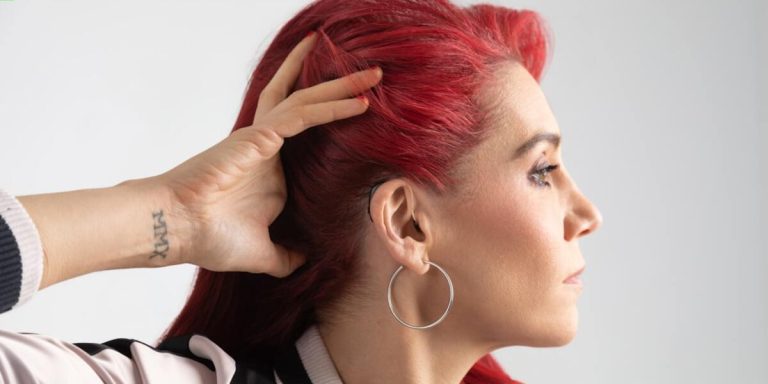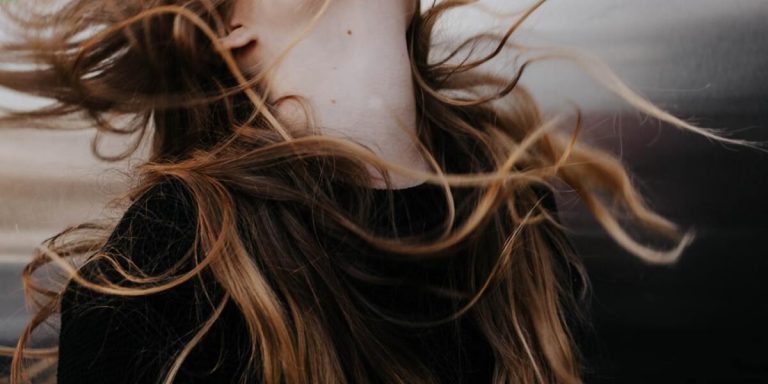Can Lice Cause Hair Loss? Unveiling the Potential Impact on Your Scalp Health
Hair loss is a common concern that leaves many of us searching for potential causes, and one question that often arises is – can lice cause hair loss? While lice are typically associated with itching and discomfort, their long-term impact on scalp health might not be as widely understood. This post aims to shed light on the effect these tiny creatures may have upon our tresses.
The relationship between head lice infestation and subsequent hair thinning or loss has been subject to debate among experts. By delving into the dynamics of how an infested scalp reacts over time under such conditions, we hope to provide clarity around this little-discussed aspect in detail below.
Did you know?
Contrary to popular belief, head lice themselves do not cause hair loss. However, excessive scratching and severe infestations can damage the scalp and follicles, potentially leading to temporary hair thinning or loss.
Understanding the Connection Between Lice Infestation and Hair Loss
Lice infestation is often associated with itchiness and discomfort, but can it lead to hair loss? It’s a question that many people struggle to find an accurate answer for. In the realm of health and wellness, misinformation abounds – particularly when it comes to topics like lice and its potential effects on your scalp health.
The primary issue related to head lice isn’t the actual insects themselves but instead their actions. As ectoparasites, they survive by feeding off human blood through tiny bites in the scalp. This continuous biting activity triggers itching which leads individuals to scratch their scalps incessantly.
The scratching though seemingly relieving at first could ultimately damage both scalp skin and hair follicles thereby compromising healthy hair growth.
Frequent aggressive scratching might uproot some hairs causing visible thinning over time – although this is not always common or extreme enough to be necessary cause of concern as far as severe balding goes Nevertheless understanding how such pests operate makes us realize how indirectly lice could play a role in temporary hair loss promoting conditions.
Examining the Role of Scalp Irritation in Hair Thinning
The link between lice infestation and hair loss may not be immediately clear. However, to fully comprehend this association, one must first understand the effects of these tiny parasites on the scalp’s health. So can lice cause hair loss?
Interestingly enough, they indirectly do.
Lice feed on human blood drawn from the host’s scalp leaving behind scratches and abrasions. These injuries are due to persistent itching that usually accompanies a lice infestation. When left untreated or in severe cases, this continuous scratching can lead to chronic inflammation of the scalp.
Scalp inflammation is more than just an annoying side effect; it’s potentially damaging for your hair follicles too – acting as a catalyst for temporary thinning of the tresses or even more permanent types of alopecia depending upon each individual case.
Debunking Myths: Direct Impact of Lice on Hair Follicles
It’s a common misconception that lice can cause hair loss. These tiny wingless insects do not have the power to damage your hair follicles directly or lead to baldness, despite their notorious reputation.
First off, it’s essential we understand what lice are and how they operate. Lice primarily feed on human blood which they acquire by penetrating the scalp surface using sharp mouthparts. Now you might be thinking – doesn’t this process harm our precious roots?
The answer is no; while slightly discomforting, these bites don’t affect the protein structure of your hair strand nor its ability to grow from the follicle beneath.
Now let’s address another myth: excessive itching leads to root weakness resulting in eventual hair fall out. Itching indeed is a result of an allergic reaction some people experience due to biting by lice but falling strands as such are more likely because of constant scratching instead of an impact made by those little critters themselves.
In case you’re wondering about matting or clumping caused due to heavy infestation making us forcibly remove chunks causing extensive damage – remember it being very rare! Such severe situations could occur when left untreated for long periods allowing breeding grounds expand exponentially (it takes around 7-10 days only for one nit egg hatch). So timely intervention with appropriate treatments will prevent circumstances from reaching such extremes!
Comprehensive Analysis of Common Causes for Hair Loss
Hair loss is an issue that affects many individuals worldwide and can be distressing to experience. Among the common causes for hair loss, one misconception frequently circulated involves head lice’s role in this condition. The question arises often: Can lice cause hair loss?
Although a surprising query for some, it’s critical to provide clarity on such topics.
Head lice are tiny insects that feed off blood from the human scalp, leading primarily to discomfort and itching due to allergic reactions towards their saliva. However, they’re not typically associated directly with hair loss as primary causative agents themselves. It should be noted though; chronic vigorous scratching induced by persistent infestations could potentially damage follicles over time which may lead indirectly toward thinning of strands or even complete bald spots.
In 2023 science hasn’t established any concrete evidence linking head lice infestation directly with permanent alopecia (hair fall). Nonetheless, let’s address this myth conclusively among our comprehensive analysis of common causes contributing towards progressive shedding of hairs.
Hormonal Imbalances and Genetic Factors in Losing Hair
For many people, hair loss is a common and quite distressing problem. There are numerous reasons why you may be experiencing this issue, with hormonal imbalances and genetic factors being paramount among them.
Hormonal imbalances meddle significantly in the process of natural hair growth. Thyroid issues are one such example where an overactive or underactive thyroid gland can lead to massive hair fall. In women especially, conditions like Polycystic Ovary Syndrome (PCOS) that create an imbalance of hormones often result in thinning of hair.
Furthermore, certain life phases characterized by significant hormonal changes- pregnancy or menopause for instance – might also cause temporary or permanent baldness respectively due to fluctuations in estrogen levels during these periods.
Shifting our attention towards genetics – it’s crucial to realize how big a role genes play when it comes to losing your locks. Androgenetic Alopecia is the most common type of inherited male pattern baldness which usually begins from early 20s onward due its association with DHT hormone production increase at puberty stage . For females however , later onset Female Pattern Hair Loss takes effect mainly over age 50 .
Nutritional Deficiencies Leading to Weakened Hair Shaft
Nutritional deficiencies play a significant role in hair health. A lack of proper nutrients can lead to weakening the structure of your hair shaft, leading not only to breakage but also thinning and loss – something you’re possibly already familiar with if you’ve been querying about whether lice cause hair loss.
Firstly, let’s talk about protein. Hair is primarily composed of keratin, a form of protein. When our diet lacks sufficient quality proteins like those found in eggs, dairy products or lean meats, it directly impacts our tresses’ strength and growth rate.
Second on this list is iron. Iron helps red blood cells carry oxygen throughout the body- including your scalp! Without enough iron (a common issue among vegetarians/vegans), your follicles may be deprived of necessary oxygen resulting in frail strands that easily succumb to fallout.
B vitamins are another crucial group for maintaining robust locks — particularly B12 and folic acid which contribute significantly towards cell growth including those responsible for building healthy hair shafts.
The next vital element we often overlook is water; being dehydrated drags down overall health affecting everything from skin lustre down to strand resilience making us head-on into bouts with brittle ends prone to split before their time!
Preventative Measures and Treatments for Lice-Induced Alopecia
Preventing lice-induced hair loss starts with understanding the cause. When lice infest your scalp, they not just disrupt your comfort but can also be one of the unlikeliest triggers for alopecia. Their persistent bites result in incessant itching, leading to excessive scratching of the scalp that damages follicles and causes temporary or permanent hair loss.
To mitigate this uncomfortable phenomenon, regular hygiene plays a crucial role. Regular shampooing using medicated formulas specifically designed to combat head lice can prove beneficial. In severe cases where over-the-counter products are ineffective, professionals may recommend stronger treatments such as prescription lotions or shampoos containing ingredients like malathion and ivermectin.
While pharmaceutical interventions are commonly sought after during an active outbreak, natural remedies often provide needed relief too – essential oils like tea tree oil have been known for their anti-lice properties since ancient times! Alongside these measures comes adopting good practices; washing bedding frequently and vacuuming any furniture that might yield stray hairs housing dreaded parasites ensure comprehensive protection against recurring infestations.
Remember though: prevention is always better than cure when it comes to head louse outbreaks linked with potential baldness issues! Just some simple tweaks in daily routines could save you from nightmares involving both pests AND substantial hair fall events down the line.
Strategies for Effective Lice Removal to Minimize Scalp Damage
The direct answer to the question “can lice cause hair loss” is yes. However, it’s not as straightforward as this sounds. For those grappling with the issue of lice-induced alopecia, understanding efficient methods for eradicating these pesky parasites can be a game-changer.
Firstly, let’s focus on over-the-counter treatments which are easily available and often provide quick relief from infestations. Products with active ingredients like pyrethrins or permethrin have been proven effective in treating head lice.
Secondly, don’t underestimate natural remedies that combat against scalp invaders while nourishing follicles for stronger locks growth simultaneously; you might just find some hidden gems there!
Lastly remember Prevention being better than cure? This rings incredibly true here: maintaining top-notch hygiene standards goes without saying but also reminding yourself about avoiding sharing personal items eg., combs/brushes/hats/headphones etc will help reduce risk noticeably so keep it mind when moving forward.
Restorative Care Options Post-Lice Treatment to Promote Regrowth
When it comes to overcoming the issue of hair loss caused by lice infestation, there is a silver lining. Luckily, with today’s advancements in technology and abundance of knowledge on restorative care options post-lice treatment, effective solutions are within reach for anyone grappling with this predicament.
Let’s begin with understanding that irrespective of how severe the hair loss might seem after successful elimination of lice from your scalp; regrowth is entirely possible. The keyword here being “can lice cause hair loss” should not be interpreted as an irreversible eventuality.
Incorporating certain practices into your routine can enhance the success rate profoundly. Firstly, hydrate and nourish your system both internally and externally. Hydration invigorates blood flow ensuring nutrients reach follicles effectively while balanced nutrition provides essential vitamins required by them.
Conclusion
In sum, the cumbersome question “can lice cause hair loss” needn’t be a worry hanging over your head. Remember, it’s not necessarily the lice themselves but constant scratching and conditions associated with infestation that can lead to less healthy locks. Your scalp has seen you through thick and thin (literally), so give it some TLC!
Don’t let this topic ‘itch’ in your mind anymore; we’ve got a plethora of resources waiting for you on our website if you’re interested in learning more about various Hair Loss Causes. Whether scientific explanations or preventive measures tickle your fancy, rest assured there’s always something new to unravel as nature never ceases its quirkiness—and neither should we!







